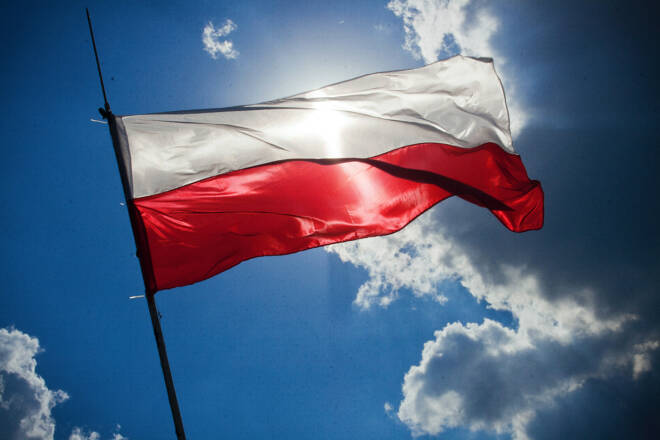Advertisement
Advertisement
Poland: Pivotal Elections Bring a Pro-european Coalition Back to the Fore
By:
The Tusk coalition will have beaten the odds if it secures a parliamentary majority. The change of government supports the country’s credit standing, despite potential governance and budgetary challenges.
The Polish election results (Figure 1) suggest the Polish opposition under former Polish premier and European Council President Donald Tusk holds a path to a parliamentary majority.
Figure 1. Composition of the lower house of the Polish parliament, seats
In line with tradition, President Andrzej Duda holds the option to give a mandate for forming the next government first to Law and Justice (PiS) – as the largest single vote getter. However, the party faces steep odds against building a majority. Whether PiS is given such a first opportunity or not, Tusk ought to get his chance at forming a government inside the coming weeks.
Change of Polish Government Supports Sovereign’s Creditworthiness
The expected post-election change of government favouring Civic Coalition and its partners supports Scope Ratings’ present Stable Outlook on Poland’s A rating. Whereas Poland’s credit quality in recent years has been on a steadily weakening trend – driven predominantly by consequences of governance backsliding – a potential policy U-turn could arrest this trajectory.
A centrist coalition under Tusk holds a mandate of reversing some of the damage to Polish government and media institutions after the consolidation of power under PiS of the past eight years and return Poland to the centre of European policy making. This bucks a centre to far-right wave after Robert Fico’s victory in Slovak elections recently, and Viktor Orbán’s and Giorgia Meloni’s wins in Hungary and Italy – preventing a Eurosceptic Visegrád group and strengthening the authority of the European Union on rule of law.
The election outcome and a strengthened hand of Europe in reinforcing democratic values not only supports Poland’s rating but also that of regional sovereigns such as Hungary (rated by Scope Ratings BBB/Stable Outlook), which will potentially face a more united EU voice on governance absent a Polish veto.
Governing Would Prove Anything but Easy for a Potential Tusk Government
A Tusk government would likely re-open EU funding access and anchor business confidence and capital flows; nevertheless, governing could prove anything but easy.
First, the three-way coalition of Civic Platform with Third Way and the New Left has been united by the historic election and a shared objective of protecting Polish democracy. Nevertheless, after such a uniting vision is achieved, the three parties are engaging in negotiations around sensitive subjects such as abortion and LGBT rights, with differences in their underlying policy positions. Such differences may hinder government formation, the stability of this coalition and efficacy of its policy making.
Even though Poland’s election results suggest a shift in the political landscape, certain policy positions, especially on migration, may furthermore not change as dramatically as expected.
Second, Law and Justice is not disappearing. Under any scenario, the party retains significant power and influence and could act as a roadblock for the policy objectives of an incoming government. PiS judges appointed in past years still hold positions of power within the court system, former member of the party Andrzej Duda remains president until at least 2025 while Jarosław Kaczyński associate Adam Glapiński is governor of the National Bank of Poland currently until 2028, after he was re-appointed last year.
Although the governance outlook for Poland for potentially the next few years looks much brighter than before, the longer-run outlook remains much less clear.
Finally, an incoming government will inherit its set of economic challenges. The economy has slowed: Scope projects real economic growth of -0.7% in 2023 after a Q2 contraction, before recovery of 1.8% in 2024. Inflation is declining but remains materially higher than its 1.5% to 3.5% target (Figure 2). Inflation is seen averaging 11.5% in 2023 and 4.9% in 2024. Fiscal deficits are above a 3% Maastricht level and debt is expected to rise. This presents an obstacle for any third Tusk premiership given commitments for sustaining increases in social benefits.
Although yields dropped on the election outcome, a more hawkish central bank after the elections and with PiS in opposition may see a pause of rate cuts and higher long-end rates, affecting the budgetary outlook.
Figure 2. Poland headline inflation and official rate, %
Polish Democracy Has Proven More Resilient Than Many Had Foreseen
This election loss for PiS came despite the government having adopted varying policies to tip the balance:
- the scheduling of a referendum on EU migration policy at the same time as the election to raise turnout of its electoral base;
- ensuring State-owned refiner Orlen sustained low fuel prices before the vote;
- 100bps of pre-election rate cuts from the central bank;
- electoral reform discriminating against voters from abroad; and
- a commission on alleged Russian linkages of opposition figures such as Tusk.
The fact the opposition overcame such odds because of record turnout of their own electorate – such as a near doubling of Poles registering from abroad – demonstrates Poland’s democratic institutions are more resilient than many had anticipated, making for this changing of the tide.
For a look at all of today’s economic events, check out our economic calendar.
Dennis Shen is a Senior Director in Sovereign and Public Sector ratings at Scope Ratings GmbH.
About the Author
Dennis Shencontributor
Dennis Shen is the Chair of the Macroeconomic Council and Lead Global Economist of Scope Ratings based in Berlin, Germany.
Advertisement
